“There shall be a firm, inviolable and universal Peace, and a true and sincere Friendship between the most Christian King, his Heirs and Successors, and the United States of America”~ Article 1
The Franco-American Alliance
“The greatest diplomatic victory the United States has ever achieved” (Edmund S. Morgan)
On February 6, 1778, the Franco-American alliance became official.
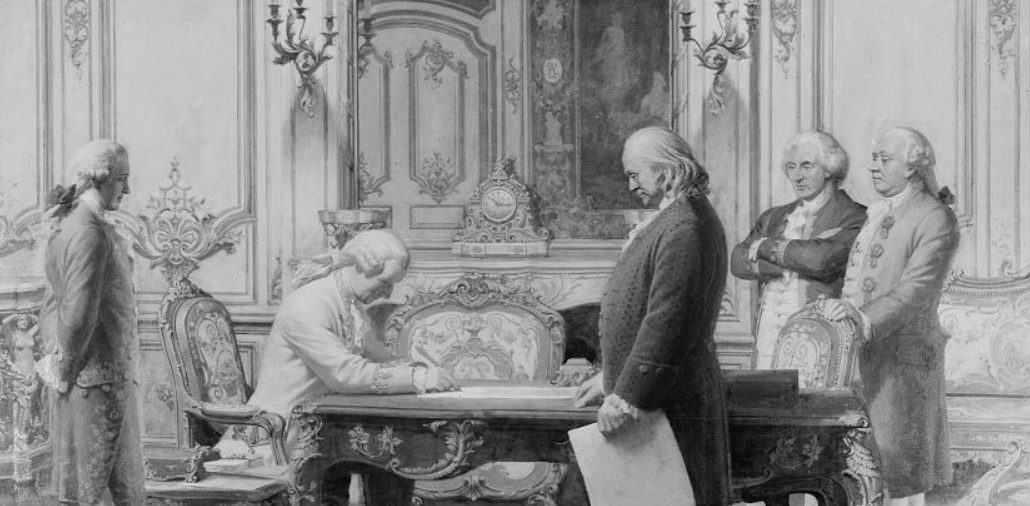
The Signing of the Treaty of Amity and Commerce and of Alliance by Charles Mills, courtesy of Library of Congress
The Treaty of Amity and Commerce
It was based on Congress' Model Treaty.
The Treaty of Alliance
Signed at France’s request, it resembles Europe’s traditional military treaties.
Its primary goal was American independence.
“The essential and direct End of the present defensive alliance is to maintain effectually the liberty, Sovereignty, and independence absolute and unlimited of the said United States, as well in Matters of Government as of commerce” ~ Article 2
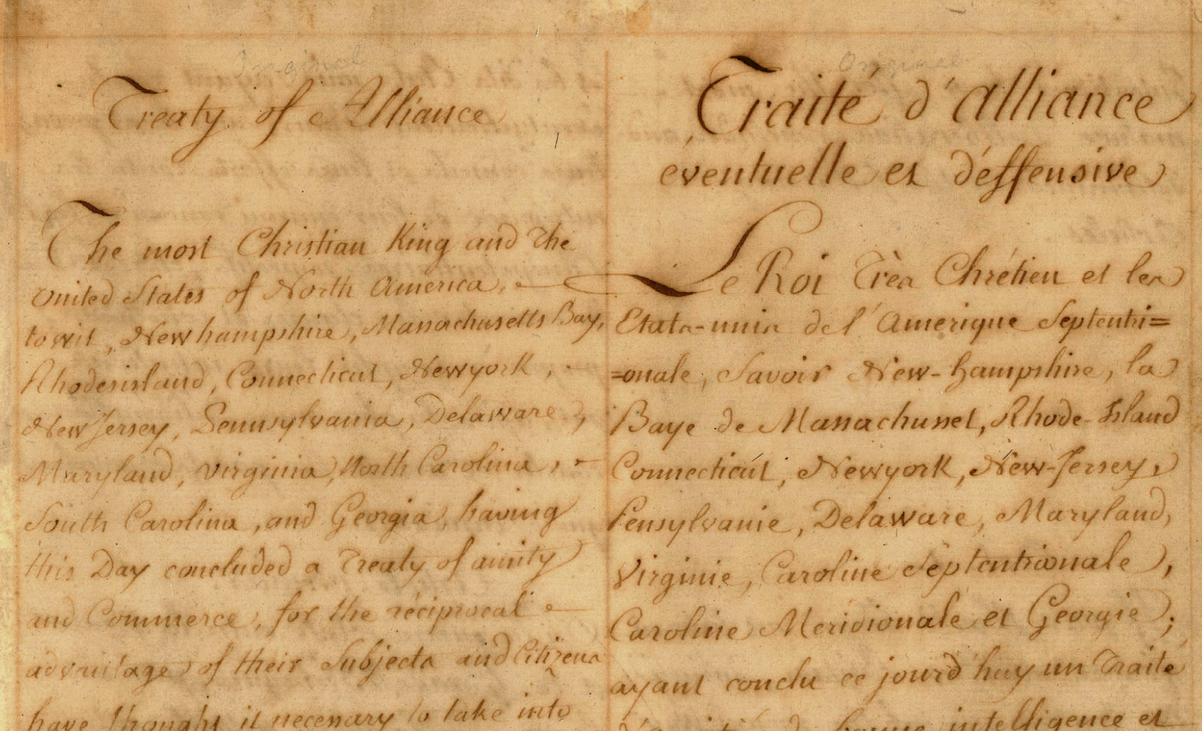
Treaty of Alliance, 1778, courtesy of National Archives
No separate peace was allowed.
“Neither of the two Parties Shall conclude either Truce or Peace with Great Britain, without the formal consent of the other first obtain’d; and they mutually engage not to lay down their arms, until the Independence of the united States Shall have been formally or tacitly assured by the Treaty or Treaties that shall terminate the War.”
~ Article 8
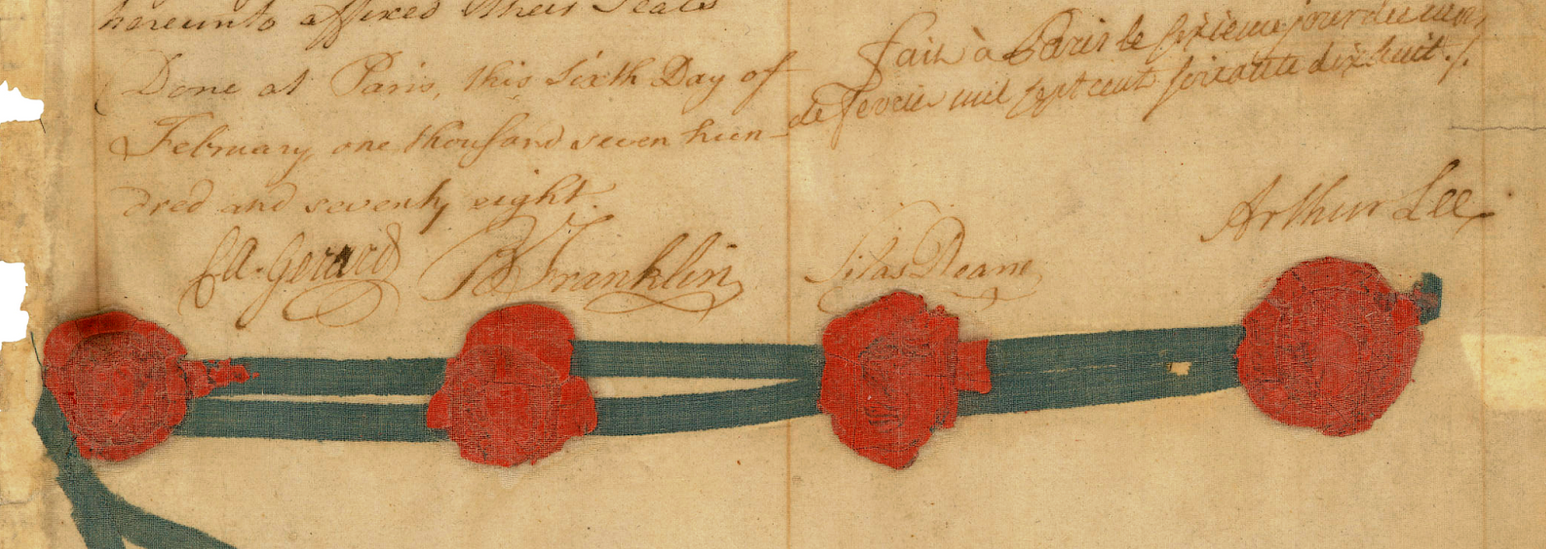
Treaty of Alliance, signatures and seals, 1778, courtesy of National Archives
Britain's vain offers
Britain tried to break the newly formed alliance with concessions “but at this time all proposals Except for peace upon Honourable & Equal terms must be ineffectual.” (Major General Sullivan to British Major General Pigot, April 27, 1778, in Stinchcombe 23)
“America has been forced and driven into the arms of France. She [America] was a dutiful and virtuous daughter. A cruel mother-in-law [Britain] turned her out of doors, defamed her, and sought her life. All the world knows her innocence and takes her part, and her friends hope soon to see her honourably married.”
~ Benjamin Franklin to David Hartley, Esq., British M.P., February 12, 1778, Passy, in Private Letters, 16-17.
Reactions in America
Congress unanimously ratified the treaties, thanking Louis XVI.
“That this Congress entertain the highest sense of magnanimity and wisdom of his most Christian majesty so strongly exemplified in the treaty of amity and commerce and the treaty of alliance.”
~ Congress, May 5, 1778 in Wharton, I, 569
Joy spread in America.
Washington and his soldiers were enthusiastic.
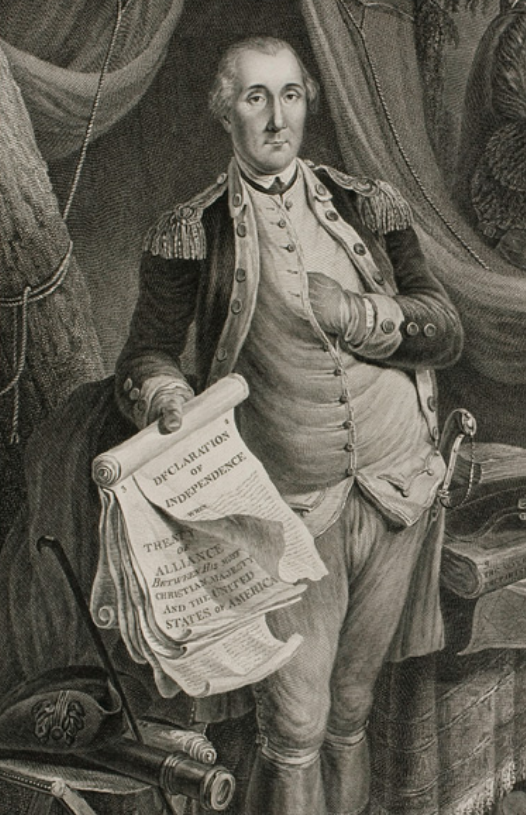
George Washington holding the Declaration of Independence and the Treaty of Alliance by Noel Le Mire, c. 1780, courtesy of Mount Vernon.
“I believe no other event was ever received with a more heart felt joy.”
~ George Washington to Henry Laurens, President of Congress, Valley Forge, May 1, 1778
Radicals were raving.
“What a miraculous change in the political world! The ministry of England advocates for despotism, and endeavouring to enslave those who might have remained loyal subjects to the King. The government of France an advocate of liberty, expousing [sic] the cause of protestants and risking a war to secure their independence. [...] Britain at war with America! France in Alliance with her! These, my friend, are astonishing changes. Perhaps one principle, self interest, may account for all.” ~ Elbridge Gerry to ――, May 26, 1778, in Stinchcombe, 19
But some were distressed.
John Adams resented the military alliance.
“If my Life should be Spared I am determined Posterity shall know which was my Treaty and which was the other People's Treaty. I never was more mortified in my Life, than upon finding at my Return to Congress, what they [the American Commissioners in Paris] had done.”
~ John Adams to Edmund Jenings, July 18, 1780, in Bauer, 689
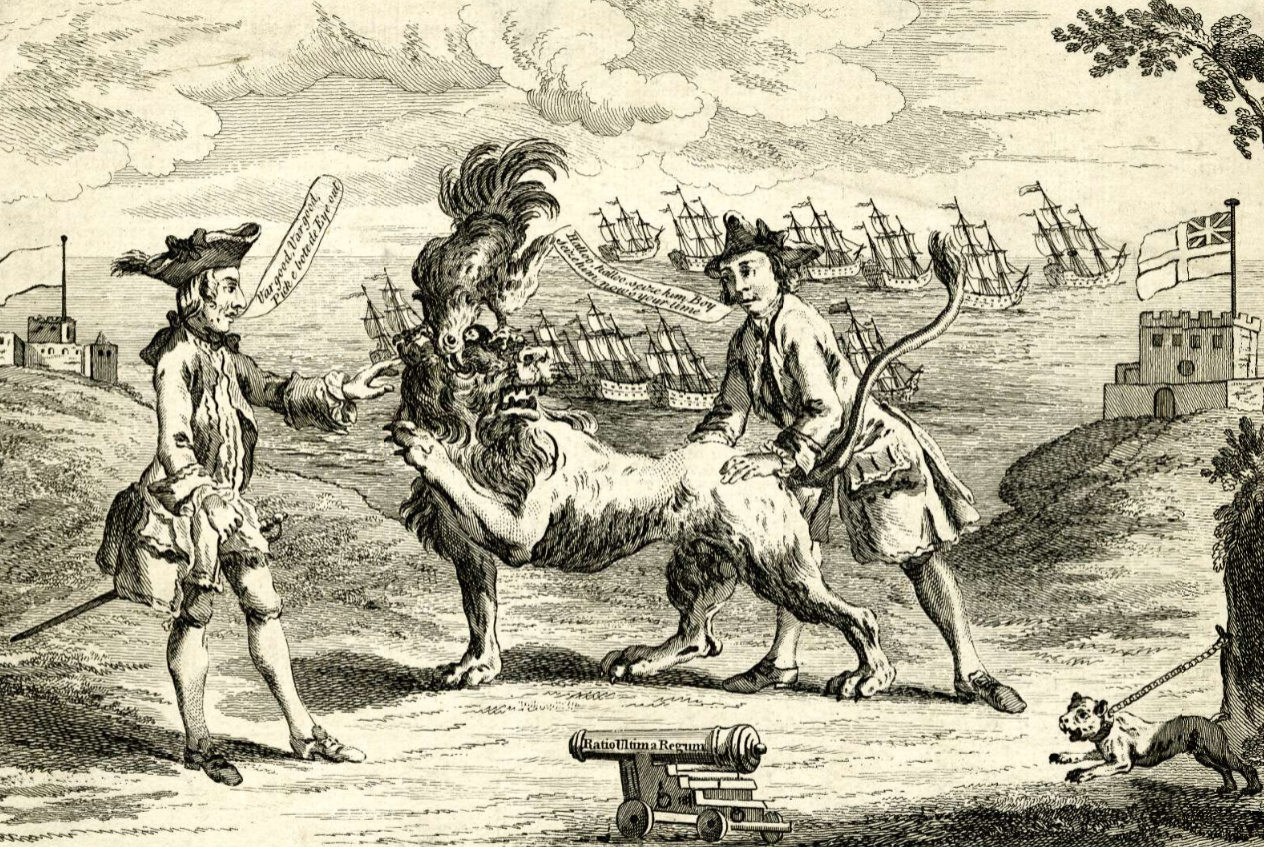
The Gallic Cock and English Lyon or A Touch of the Times, courtesy of the British Museum
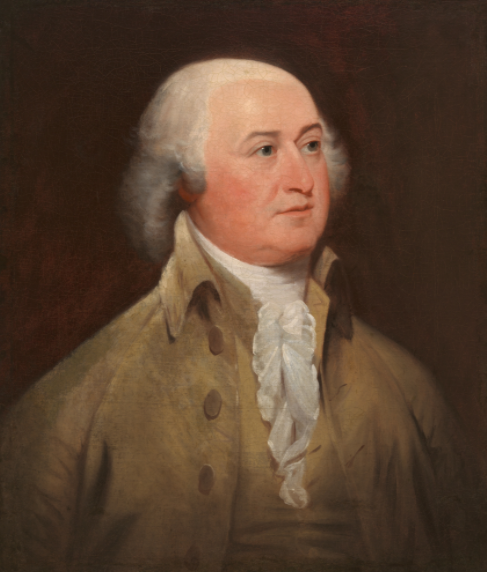
John Adams by John Trumbull, c. 1792-1793, courtesy of the White House
American Loyalists were appalled.
“This fatal treaty is at length executed. [...] The roar of the British lion will no more be heard; the French cock may now crow and strut undisturbed. [...]
[America] has allied itself to her natural, professed, and most dangerous enemy.”
~ Curwen to Smith, Feb. 25, 1778 in Stinchcombe, 1
The alliance was a watershed.
“America has now taken her rank among the nations and has it in her power to secure her Liberty and Independence.”
~ Maryland Congressman Samuel Chase to Johnston, May 3, 1778, in Stinchcombe, 19